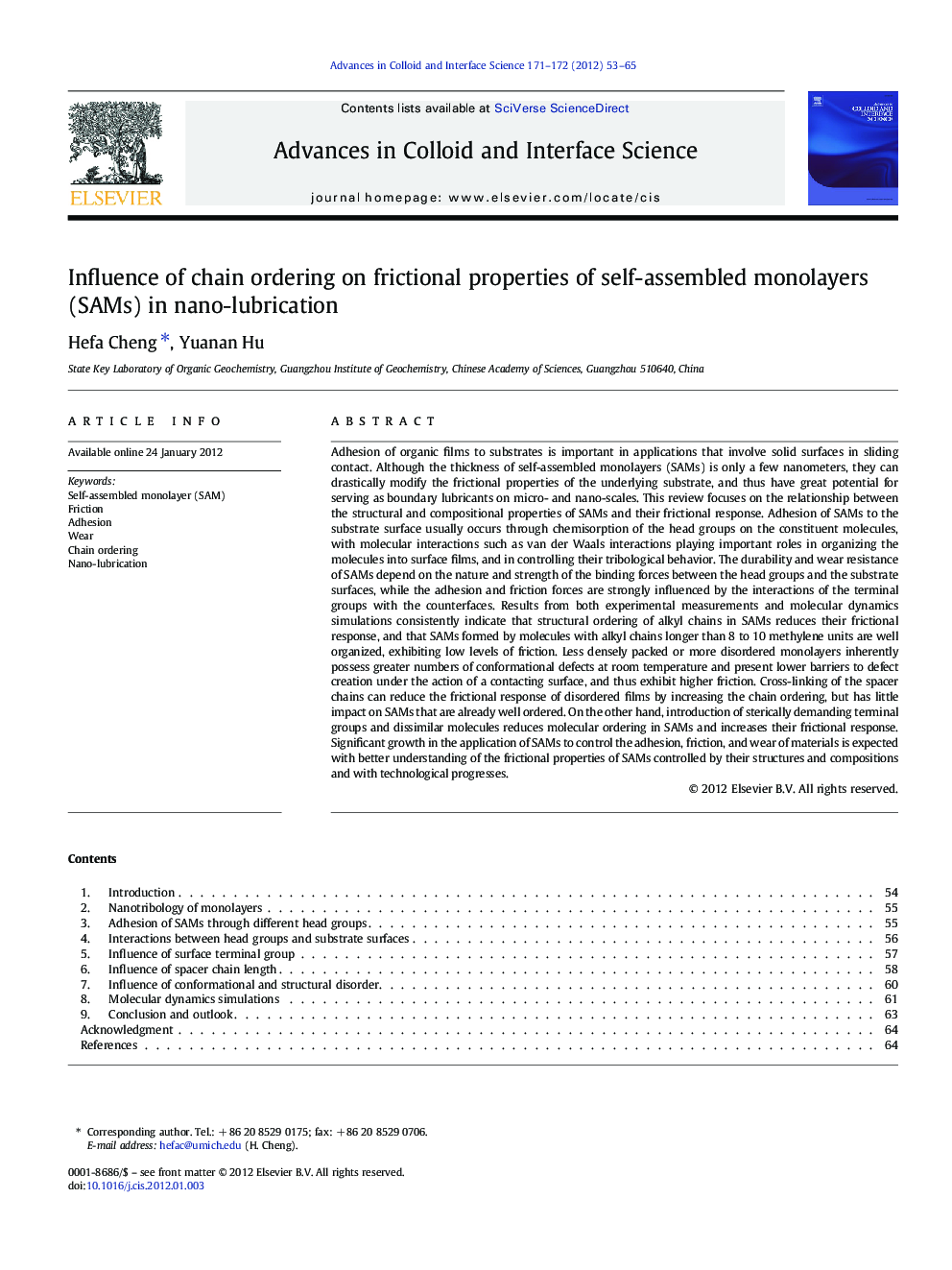| کد مقاله | کد نشریه | سال انتشار | مقاله انگلیسی | نسخه تمام متن |
|---|---|---|---|---|
| 590931 | 1453577 | 2012 | 13 صفحه PDF | دانلود رایگان |

Adhesion of organic films to substrates is important in applications that involve solid surfaces in sliding contact. Although the thickness of self-assembled monolayers (SAMs) is only a few nanometers, they can drastically modify the frictional properties of the underlying substrate, and thus have great potential for serving as boundary lubricants on micro- and nano-scales. This review focuses on the relationship between the structural and compositional properties of SAMs and their frictional response. Adhesion of SAMs to the substrate surface usually occurs through chemisorption of the head groups on the constituent molecules, with molecular interactions such as van der Waals interactions playing important roles in organizing the molecules into surface films, and in controlling their tribological behavior. The durability and wear resistance of SAMs depend on the nature and strength of the binding forces between the head groups and the substrate surfaces, while the adhesion and friction forces are strongly influenced by the interactions of the terminal groups with the counterfaces. Results from both experimental measurements and molecular dynamics simulations consistently indicate that structural ordering of alkyl chains in SAMs reduces their frictional response, and that SAMs formed by molecules with alkyl chains longer than 8 to 10 methylene units are well organized, exhibiting low levels of friction. Less densely packed or more disordered monolayers inherently possess greater numbers of conformational defects at room temperature and present lower barriers to defect creation under the action of a contacting surface, and thus exhibit higher friction. Cross-linking of the spacer chains can reduce the frictional response of disordered films by increasing the chain ordering, but has little impact on SAMs that are already well ordered. On the other hand, introduction of sterically demanding terminal groups and dissimilar molecules reduces molecular ordering in SAMs and increases their frictional response. Significant growth in the application of SAMs to control the adhesion, friction, and wear of materials is expected with better understanding of the frictional properties of SAMs controlled by their structures and compositions and with technological progresses.
Figure optionsDownload as PowerPoint slideHighlights
► Micro-/nanoelectromechanical systems demand robust ultrathin films for lubrication.
► SAMs can drastically modify the frictional properties of the contacting surfaces.
► Structural ordering of the alkyl chains in SAMs controls their frictional properties.
► SAMs are promising for serving as boundary lubricants on micro- and nano-scales.
► Development of experimental and theoretical tools can gain more understanding on SAMs.
Journal: Advances in Colloid and Interface Science - Volumes 171–172, March–April 2012, Pages 53–65